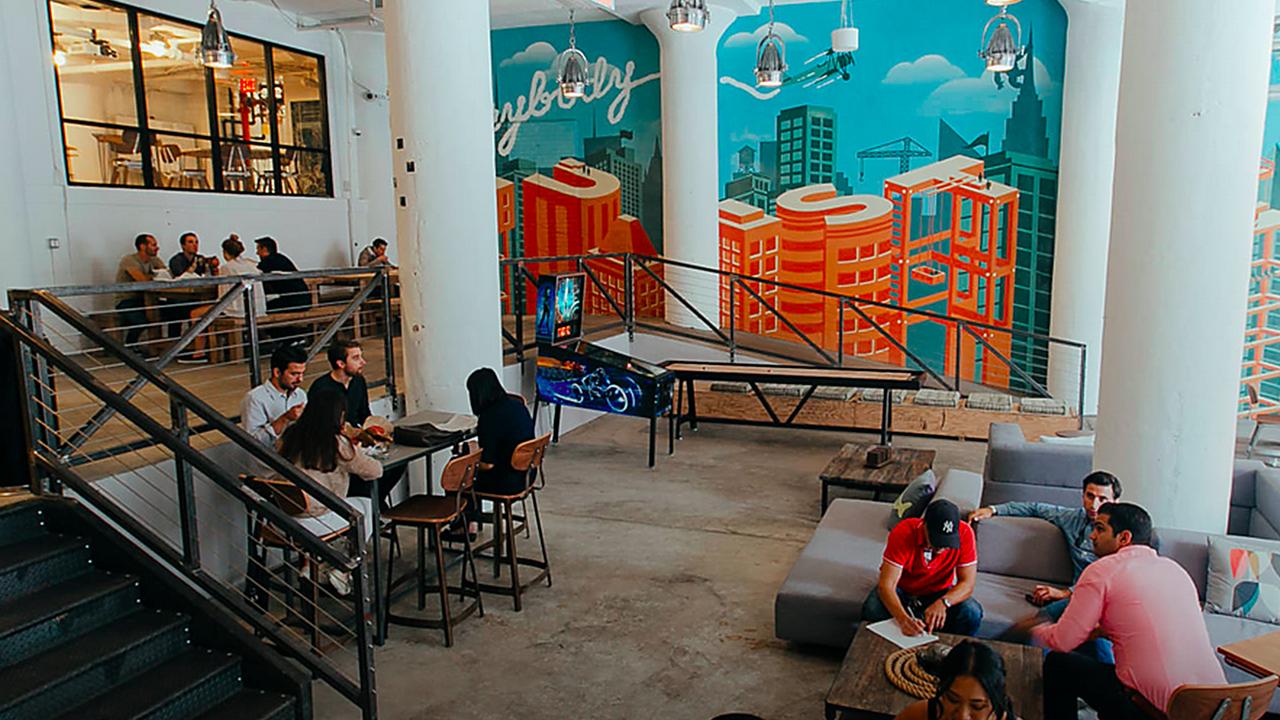Maybe it's time Aunty scrambled
THE BBC in Britain is moving out of London and relocating 2300 staff. Maybe the ABC should think about spreading its staff around as well
WHILE passing through Britain recently I was transfixed by a news item that caught my eye. Apparently, the BBC is relocating 2300 staff from London to Salford in Manchester as part of a broader plan to de-Londonise the cultural perspective of Britain's premier media organisation.
Australians, and I think especially Melburnians like myself, have long been acutely aware of the Sydney-centricity of business and to some extent government-funded institutions. Why does the Australian Prime Minister maintain a holiday house in Sydney? Isn't that why Canberra was built, to prevent the gravitas of this office being associated with one colony?
The underlying cause of inter-regional rivalry within Britain, and within Australia, is the fact taxpayer-funded institutions, jobs and cultural influence are heaped upon a favoured city: London's institutions are supported by taxes garnered from the regions.
More to the point, insensitive Londoners like to remind their provincial cousins about the yawning gap between life in the home counties and in the provinces.
There are similar resentments between Paris and France's north and New York and lesser mortals who live in places beyond Manhattan Island.
In 2006, the BBC's Board of Governors decided to relate part of the organisation to a regional area. Salford Quays was chosen; it is a redevelopment site not unlike Melbourne's Docklands in its scale and in its orientation to a CBD. The relocation of five BBC departments -- Sport, Children's, Radio 5, Breakfast and Research -- began in May.
Top Gear presenter Jeremy Clarkson is not up for a move and is unimpressed with the concept. Writing this month in London's Sunday Times, Clarkson vowed to resign in a heartbeat if asked to relocate. Of Salford, Clarkson, ever the agent provocateur, says it is "nowhere near any court that matters". His comments were not well received by the Manchester Evening News.
I am deeply impressed by the BBC's move and wonder whether the same could not be achieved here with the ABC as a potential agent of social and cultural change.
Manchester is 300km northwest of London. I am not suggesting the ABC pull up stumps from Sydney's Ultimo and relocate to Dubbo, although I am sure the mayor of Dubbo would take ABC managing director Mark Scott's call if he ever wanted to chat.
The issue in Australia is not so much the cultural and taxpayer-funded institutional dominance of one city over another, but the disparity between the range, scale and depth of job opportunities in the inner city and in the suburbs.
Australian cities are like fried eggs: a rich and culturally creamy inner-city yolk is surrounded by bland and suburban egg white.
I think it's time to scramble things up.
The ABC has 5000 employees with a budget of almost $1 billion. The BBC, on the other hand, has 23,000 employees and a budget equivalent of $4.5bn.
By my reckoning, the BBC is four times the size of the ABC in a nation of double the population. It could be said that the cultural impact of the BBC on Britain
is, by these measures, about double that of the ABC on Australia.
If the BBC can pull up stumps from London to provincial Salford then the ABC can surely cleave off a division of two from its Sydney HQ at Ultimo (and from its Melbourne HQ at Southbank) and relocate to the suburbs.
Why not take parts of a taxpayer-funded institution like the ABC that are not especially tied to the CBD and relocate the lot to an area deprived of knowledge workers?
If the BBC can do its job from Salford then surely the ABC can do its job from the burbs: I suggest transport-orientated centres such as Melbourne's Dandenong and Sydney's Blacktown.
For ABC aficionados, and also for the odd ABC presenter, could I offer the reassurance that Dandenong and Blacktown are not "the provinces" but are in fact real places located in what is known as "the outer suburbs"?
Yes, relocate parts of the ABC to places beyond the Latte Line and beyond the Goat's Cheese Curtain that so effectively divide Australia's largest cities the way that Londoners, Manhattanites and Parisians are separated from the rest of humanity.
And it fits with today's bigger-picture thinking. Tony Burke's population strategy released in May allocated funding to specifically assist with the relocation of inner-city jobs to the outer suburbs.
Does this not confirm the current government is serious about spreading job opportunities to all Australians, including the marginalised who, in another era, would have worked in manufacturing?
And, ABC people, think of the lifestyle benefits. Staff and presenters could live in grand style in places like Melbourne's Endeavour Hills and Sydney's
St Mary's and cycle to work.
Is this not exactly the urban utopia we all dream about? What would be the reduction in the nation's carbon footprint if such a policy was pursued?
Surely, this is a good idea. The BBC thinks it's a good idea. Why wouldn't it work in Australia? And especially if the Salford equivalent wasn't Dubbo but a place a mere hour's drive from the city centre.
I understand that there may be some who, like Clarkson, might be reluctant to move from the civilising influences of the cafes, the terraces and the bars of the inner city, but think of the greater good.
You are missionaries taking important cultural institutional and diverse job opportunities to deprived places, and you can also serve as an inspiration to others who hopefully will follow suit.
The fundamental question that I have for the ABC is: if the BBC can do it to Salford, why can't the same be done within, and not beyond, Sydney and Melbourne?
KPMG Partner Bernard Salt is the author of The Big Tilt
Twitter.com/bernardsalt; Facebook/BernardSaltDemographer; bsalt@kpmg.com.au





To join the conversation, please log in. Don't have an account? Register
Join the conversation, you are commenting as Logout